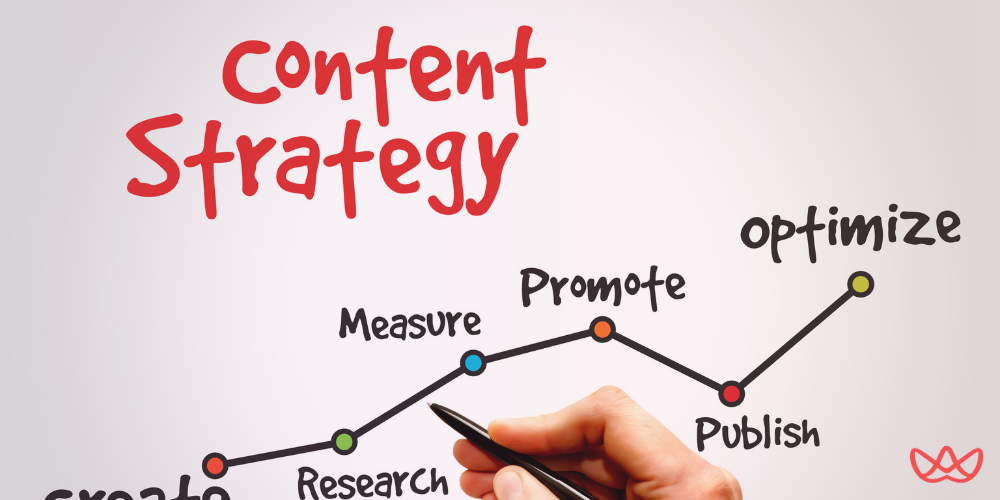Introduction to the Role of a Content Strategist

The role of a content strategist has become crucial. These professionals are responsible for crafting a brand’s voice and ensuring that content aligns with business objectives. By developing a comprehensive content strategy, they help businesses engage their target audience effectively and achieve their marketing goals.
These responsibilities of a content strategist contain more than just content creation, as they require extensive research and an understanding of market trends and audience preferences. Content Strategist Key Skills Summary emphasizes the importance of coordinating with teams to develop cohesive and efficient content. The key roles of a content strategist will be introduced in this section, along with the necessity of a strong content strategy in the world of digital marketing.
What Does a Content Strategist Do?
Content strategists are tasked with developing a roadmap for content creation that aligns with a company’s goals. This involves conducting thorough research to understand the target audience and identifying the most effective channels for content distribution. By doing so, they ensure that the content resonates with the audience and drives engagement.
Besides, content strategists keep all content together, writing guidelines that inform on any tone, style, or messaging that every content piece has to keep consistent with the brand’s message. This, in turn, creates trust and credibility in the eyes of the audience and, therefore, generates brand loyalty.
The Importance of Content Strategy in Digital Marketing
Content strategy is an integral part of any successful marketing plan. A well-defined content strategy helps businesses navigate the complex digital landscape and stand out in a crowded market. By aligning content with business objectives, companies can effectively communicate their value proposition and connect with their audience on a deeper level.
Furthermore, a robust content strategy enables businesses to adapt to changing market trends and consumer preferences. By continuously analyzing data and measuring content performance, content strategists can make informed decisions and optimize their strategies for maximum impact. This adaptability is crucial in maintaining a competitive edge and driving long-term success.
The role of a content strategist is multifaceted and essential for any business looking to thrive in the digital space. By understanding the intricacies of content strategy and its impact on digital marketing, companies can harness the power of content to achieve their goals and build lasting relationships with their audience.
Key Skills of a Highly Successful Content Strategist
In the whirlwind of digital media today, content strategy has become invaluable. These professionals craft compelling content that effectively drives engagement and sales. Content Strategist Key Skills Summary highlights the diverse skill sets that every content strategist must cultivate to succeed. In this section, the most important skills of a successful content strategist will be described, along with insights and practical tips on how to develop each one.
1. Understanding of Target Audience
At the heart of every successful content strategy lies a deep understanding of the target audience. Content strategists must be adept at researching and analyzing audience demographics, preferences, and behaviors. This involves utilizing tools like Google Analytics and social media insights to gather data. By understanding the audience, strategists can tailor content that resonates and drives engagement.
Practical Tip: Create detailed audience personas to guide your content creation process. These personas should include information such as age, interests, challenges, and preferred content formats.
2. Establishing a Successful Content Strategy
Developing a robust content strategy is crucial for any content strategist. This involves setting clear objectives, defining key performance indicators (KPIs), and outlining the content types and channels to be used. A well-crafted strategy serves as a roadmap, ensuring that all content efforts align with business goals.
Practical Tip: Regularly review and adjust your content strategy based on performance data and changing industry trends to maintain its effectiveness.
3. Collaboration, Teamwork, and Delegating
Content strategists often work with diverse teams, including writers, designers, and marketers. Effective collaboration is essential to ensure that all team members are aligned and working towards common goals. Delegating tasks appropriately and fostering a collaborative environment can significantly enhance productivity and creativity.
Practical Tip: Use project management tools like Trello or Asana to streamline communication and task delegation within your team.
4. Creativity and Innovation
In a crowded digital space, creativity and innovation set content apart. Content strategists must continuously brainstorm fresh ideas and explore new formats to keep the audience engaged. This involves staying updated with the latest content trends and experimenting with different styles and mediums.
Practical Tip: Schedule regular brainstorming sessions with your team to generate innovative content ideas and encourage creative thinking.
5. Strong Communication Skills
Effective communication is a cornerstone skill for content strategists. Whether it’s articulating a vision to a team or presenting a strategy to stakeholders, clear and persuasive communication is vital. This skill ensures that everyone involved understands the objectives and the value of the content strategy.
Practical Tip: Practice active listening and seek feedback to improve your communication skills continuously.
6. Analytical Skills for Performance Tracking
Content strategists must be proficient in analyzing data to track the performance of content. This involves understanding metrics such as engagement rates, conversion rates, and SEO rankings. By analyzing these metrics, strategists can make informed decisions to optimize content and improve results.
Practical Tip: Familiarize yourself with analytics tools like Google Analytics and SEMrush to enhance your data analysis capabilities.
7. Excellent Organizational Skills
Managing multiple content projects simultaneously requires exceptional organizational skills. Content strategists must be able to plan, prioritize, and execute tasks efficiently to meet deadlines and maintain quality. An organized approach ensures that all aspects of the content strategy are executed smoothly.
Practical Tip: Develop a content calendar to organize and schedule your content production and publication activities effectively.
8. Ability to Pivot and Adapt to Trends
The digital landscape is ever-evolving, and content strategists must be agile in adapting to new trends and technologies. This ability to pivot ensures that content remains relevant and competitive. Staying informed about industry developments and being open to change is crucial for long-term success.
Practical Tip: Regularly attend webinars, read industry blogs, and participate in professional networks to stay updated with the latest trends.
Top Hard Skills for Content Strategists
With the changing face of digital marketing, content strategists share high-powered responsibilities to build narratives that connect with specific audiences. Content Strategist Key Skills Summary underscores the importance of developing a strong toolkit of hard skills, which are essential for success in this dynamic global environment. Content strategists apply these professional competencies to plan, execute, and measure content strategies. Let’s take a look at the top hard skills one should refine to become an efficient content strategist.
Content Planning and Editorial Calendar Management
Content planning focuses on the development of a content strategy. Content strategists must organize large amounts of editorial calendars that represent a good range between business goals and audience needs, and to program them across different platforms in a consolidated manner with given upward revision flexibility based on feedback.
Tools like Trello and Asana are invaluable for managing editorial calendars. They allow strategists to collaborate with team members, track progress, and adjust timelines as needed. By mastering these tools, content strategists can ensure that content production is streamlined and deadlines are consistently met.
SEO and SEM Knowledge
Search Engine Optimization (SEO) and Search Engine Marketing (SEM) are crucial for enhancing content visibility and driving organic traffic. A deep understanding of SEO principles, such as keyword research, on-page optimization, and link building, is essential for content strategists aiming to improve search rankings.
Tools like Google Analytics and SEMrush provide insights into keyword performance and competitive analysis. By leveraging these tools, content strategists can refine their strategies to increase visibility and engagement, ultimately achieving higher conversion rates.
Data Analytics and Performance Measurement
In today’s data-driven world, the ability to analyze and interpret data is a non-negotiable skill for content strategists. Understanding metrics such as engagement rates, bounce rates, and conversion rates allows strategists to assess the effectiveness of their content and make informed decisions.
Proficiency in tools like Google Analytics and Tableau is crucial for tracking performance and identifying trends. By analyzing data, content strategists can optimize content strategies to better meet audience needs and achieve business objectives.
Content Management Systems (CMS) Proficiency
Content Management Systems (CMS) are the platforms where content is created, edited, and published. Proficiency in CMS platforms like WordPress and Drupal is essential for content strategists to efficiently manage and update content.
Understanding the functionalities of these systems, such as plugin integration and theme customization, allows strategists to enhance user experience and maintain brand consistency. Mastery of CMS platforms ensures that content is not only engaging but also technically sound and accessible.
By honing these hard skills, content strategists can significantly enhance their ability to craft effective content strategies that drive results. Whether it’s through meticulous planning, optimizing for search engines, analyzing data, or managing content platforms, these technical competencies are indispensable for success in the field.
Top Soft Skills for Content Strategists
In this ever-changing world of content strategy, technical knowledge is essential, but equally important is the array of soft skills that enable content strategists to lead teams, cultivate stakeholder relations, and navigate a dynamic online landscape. Content Strategist Key Skills Summary highlights these crucial abilities, which play a key role in ensuring success. Let us dive into the top soft skills that successful content strategists must hone.
Creative Problem-Solving
Creative problem-solving is at the heart of content strategy. Content strategists often face unique challenges that require innovative solutions. For instance, when a campaign isn’t performing as expected, a strategist must think outside the box to pivot strategies and optimize results. This skill involves not only identifying problems but also envisioning creative ways to address them, ensuring that content remains engaging and relevant.
Consider a scenario where a content strategist is tasked with increasing engagement for a brand targeting a younger audience. By leveraging creative problem-solving, they might introduce interactive content formats such as quizzes or polls that resonate with the audience’s preferences, thereby boosting engagement rates.
Effective Communication and Stakeholder Management
Good communication is key to developing any successful content strategy. A content strategist should be able to communicate their vision and plans to other team members and stakeholders. Communicating ideas also involves active listening to show how feedback and concerns have been considered and may impact final decisions. Feed others what they need to do, finally support the content goals, purpose, and ultimately, the strategies.
Moreover, managing stakeholder relationships is crucial. A content strategist should be able to negotiate and influence decisions while maintaining positive relationships. For example, when proposing a new content direction, the strategist must present data-driven insights to persuade stakeholders of its potential impact.
Leadership and Team Collaboration
Leadership in content strategy goes beyond managing a team; it involves inspiring and motivating team members to achieve common goals. A content strategist should foster a collaborative environment where creativity and innovation can flourish. This includes delegating tasks effectively and recognizing the contributions of each team member.
For instance, a content strategist leading a diverse team of writers, designers, and SEO specialists must ensure that each member understands their role in the larger strategy. By promoting open communication and collaboration, the strategist can harness the team’s collective strengths to produce cohesive and impactful content.
Adaptability and Flexibility
The field of digital interaction is continually changing, and content strategists will have to be amenable to some ideas, technologies, and trends to stay ahead. To be adaptable means being able to pivot fast when things change in the market or consumer behavior. In a nutshell, adaptability is everything for content strategists.
For example, during the rise of video content, a flexible content strategist might shift focus from traditional blog posts to creating engaging video content to capture audience attention. This ability to adapt ensures that content strategies remain relevant and effective in a fast-paced environment.
In conclusion, soft skills are indispensable for content strategists aiming to excel in their roles. By honing skills such as creative problem-solving, effective communication, leadership, and adaptability, strategists can navigate the complexities of content strategy with confidence and success.

How to Become a Successful Content Strategist
The very first step into becoming a successful content strategist encompasses education, on-the-job training, and a constant commitment to remaining ever so updated about the latest haps in the content strategy cosmos. This chapter walks you through the bare-knuckle basics of everything you will need to begin a promising career in content strategy. That is, the development of essential skills and some resources to start shining.
In the rapidly evolving digital landscape, content strategists play a crucial role in shaping how brands communicate with their audiences. Content Strategist Key Skills Summary emphasizes the importance of understanding audience needs, crafting compelling narratives, and leveraging data to inform decisions. To thrive in this field, you must master these skills. Let’s explore the key components of becoming a successful content strategist.
Educational Background and Certifications
While there is no single educational path to becoming a content strategist, a degree in marketing, communications, journalism, or a related field can provide a solid foundation. These programs often cover essential topics such as audience analysis, content creation, and strategic planning.
In addition to formal education, certifications can enhance your credibility and demonstrate your commitment to professional development. Consider pursuing certifications in content marketing, SEO, or digital analytics from reputable organizations like HubSpot, Google, or the Content Marketing Institute. These credentials not only validate your skills but also keep you abreast of the latest industry practices.
Building Experience and Industry Knowledge
Experience is invaluable in the content strategy field. Start by seeking internships or entry-level positions in marketing or communications to gain hands-on experience. Working in diverse roles, such as content creation, social media management, or SEO, can provide you with a comprehensive understanding of how different elements of content strategy come together.
Networking is another critical component. Engage with industry professionals through conferences, webinars, and online communities. Platforms like LinkedIn are excellent for connecting with other content strategists and staying informed about industry trends and opportunities. Additionally, reading industry publications and blogs can deepen your understanding and inspire innovative approaches to content strategy.
Staying Current with Content Trends and Tools
The digital marketing landscape is constantly changing, and staying current with trends and tools is essential for success. Regularly update your skills by attending workshops, enrolling in online courses, and participating in webinars. Websites like Coursera, Udemy, and LinkedIn Learning offer a plethora of courses on content strategy and digital marketing.
Moreover, familiarize yourself with the latest content management systems (CMS), analytics tools, and SEO software. Tools like Google Analytics, SEMrush, and WordPress are integral to a content strategist’s toolkit. By mastering these platforms, you can optimize content performance and make data-driven decisions that enhance your strategy.
In conclusion, becoming a successful content strategist involves a combination of education, experience, and continuous learning. By building a strong educational foundation, gaining practical experience, and staying updated with industry trends, you can develop the key skills necessary to excel in this dynamic field. Embrace the journey of lifelong learning and adaptability to navigate the ever-evolving world of content strategy effectively.
Key Metrics and KPIs for Content Strategists
Understanding key metrics and KPIs is crucial for measuring content success and making informed decisions. For content strategists, these metrics act as a barometer for gauging their content’s performance and rectifying its weaknesses. From those metrics, strategists could come up with optimized strategies that would throw them in great light in the eyes of their audience, and more so achieve the business goals.
Let’s delve into some of the most crucial metrics and KPIs that every content strategist should monitor closely. These metrics not only help in assessing the current performance but also guide future content planning and strategy development.
Engagement Rates (Shares, Comments, Likes)
Engagement rates are a direct reflection of how well your content resonates with your audience. This includes metrics such as shares, comments, and likes. High engagement rates indicate that the content is relevant, interesting, and valuable to the audience.
For example, if a blog post receives a significant number of shares, it suggests that the content is considered valuable enough for readers to share it with their network. Similarly, comments can provide qualitative feedback, offering insights into what aspects of the content were most engaging or where improvements could be made.
Content Reach and Visibility
Content reach refers to the number of unique users who have seen your content. It is a critical metric for understanding the potential impact of your content. A high reach indicates that your content is being distributed effectively and is visible to a large audience.
To increase reach, content strategists often leverage social media platforms, SEO techniques, and partnerships with influencers or other brands. By analyzing reach data, strategists can identify which channels are most effective for distributing their content and adjust their strategies accordingly.
Conversion Rates and Lead Generation
Conversion rates measure the percentage of users who take a desired action after engaging with your content, such as signing up for a newsletter, downloading a resource, or making a purchase. This metric is crucial for understanding how well your content is driving business goals.
Lead generation is closely tied to conversion rates. Effective content should not only engage and inform but also guide users towards becoming leads. By tracking conversion rates, content strategists can identify which pieces of content are most effective at converting visitors and optimize their content strategy to focus on high-performing topics and formats.
SEO Ranking Improvements
Search engine optimization (SEO) is a vital component of content strategy. Monitoring SEO rankings helps strategists understand how well their content is performing in search engine results pages (SERPs). Improved rankings mean increased visibility and traffic.
Content strategists should regularly review SEO metrics such as keyword rankings, organic traffic, and backlinks. By understanding these metrics, strategists can refine their SEO strategies to improve rankings and drive more organic traffic to their content.
In conclusion, by closely monitoring these key metrics and KPIs, content strategists can make data-driven decisions that enhance content performance and achieve strategic objectives. These insights enable strategists to refine their approaches, ensuring their content continues engaging audiences and driving business success.
FAQs
What Skills Do You Need to Be a Content Strategist?
A successful content strategist requires a blend of both hard and soft skills. Key skills include a deep understanding of the target audience, the ability to craft a comprehensive content strategy, and proficiency in SEO and data analytics. Moreover, creativity, strong communication, and collaborative skills are essential to adapt to the dynamic digital landscape.
What Is the Role of the Content Strategist?
The role of a content strategist involves planning, developing, and managing content to support an organization’s goals. This includes understanding the audience, setting content goals, and ensuring all content aligns with the brand’s voice and objectives. They work closely with marketing teams to enhance content visibility and engagement.
What Does a Content Strategy Do?
A content strategy outlines the approach to creating, publishing, and managing content. It ensures that content is consistent, relevant, and valuable to the target audience. By defining content goals, identifying key messages, and selecting appropriate channels, a content strategy helps drive engagement and achieve business objectives.
Is Being a Strategist a Skill?
Yes, being a strategist is a skill that involves critical thinking, problem-solving, and the ability to foresee and adapt to changes. It requires a strategic mindset to plan effectively and make informed decisions that align with long-term goals.
How Do You Describe Strategic Skills?
Strategic skills involve the ability to analyze complex situations, identify opportunities, and develop actionable plans. These skills include foresight, adaptability, and the capacity to anticipate future trends and challenges. Effective strategists can align resources and efforts to achieve desired outcomes efficiently.








